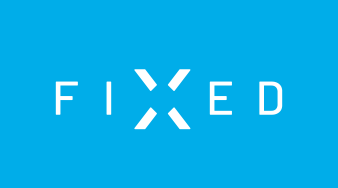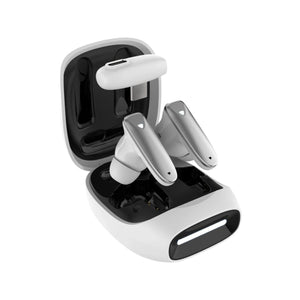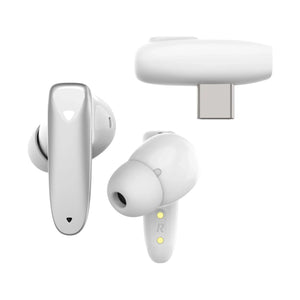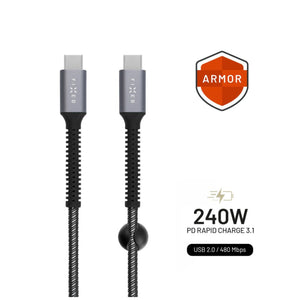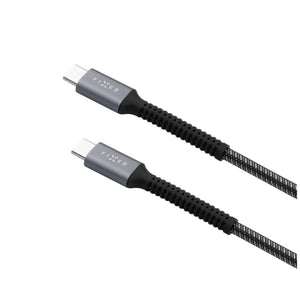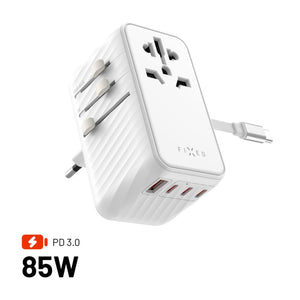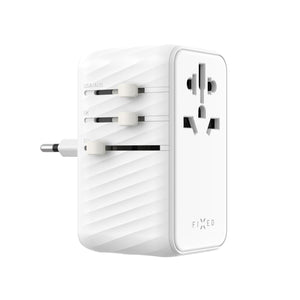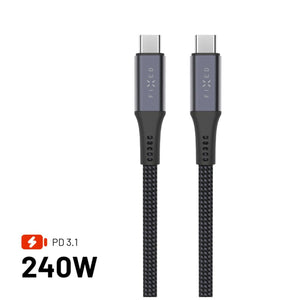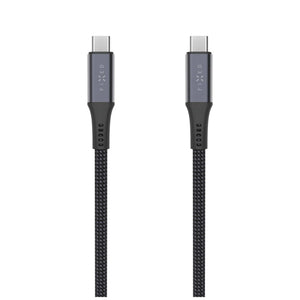What started as a crowdfunding campaign by an unknown brand has grown into a global search network led by Apple. FIXED enters the category with the ambition to be a leading force in this new ecosystem. We know why we can do it.
(through the eyes of CBDO – Libor Zezulka)
The first functional Bluetooth finder is born
It was 2012 when I saw a crowdfunding campaign for a Bluetooth-based finder called Tile. I immediately fell in love with the idea, because my head was usually full of a million ideas and didn't have the capacity for mundane things like "Where's my wallet?" or "Where are my keys?" I'd been through thousands of stressful situations where I'd turned the house upside down while looking for my wallet or car keys.
The idea of a device that could eliminate these situations almost to zero sounded like heaven to me. I sent the money and waited a few months, hoping that Tile would make it and that I would receive the first finders. They arrived and, what's more, they worked. Not completely flawlessly, the connection between the device and the phone sometimes timed out, so the last known location was not correct. But in most cases, I found my wallet within seconds. Bomb. I bought a few more finders and started thinking about how the devices and mobile apps could be improved.
A few months passed and I had a long list of ideas in front of me. What to do with it? I sent an email to Til. No one answered. I don't care, I said to myself, and started discussing two options with Dan Havner (co-founder of FIXED).
1. Let's get Tile to Europe and improve it. 2. Let's make a device similar to these locators, but better.

Decided. FIXED enters the finder/locator category
Tile finally responded, but it was purely a courtesy response. We learned that they were not interested in working together because they wanted to focus on the fast-growing American market. They were supplying Europe from Germany through a fulfillment company and saw no added value in working with FIXED. Okay, option number two comes into play. We did a fairly thorough market research and came to the conclusion that we could succeed mainly in the Central and Eastern European region, and that was more than enough for us.
Let's skip almost two years of complex development and focus on the result: The brand new FIXED Smile Bluetooth tracker was born, which works with a modern and clear application for iOS and Android. We immersed ourselves in marketing and merchandising and soon discovered that Bluetooth trackers are still new to the mass audience. So we had to start explaining and educating. The role of a pioneer fell to us. Creating a foundation and starting sales took months of effort and a lot of money.

In the meantime, we were hard at work on app updates, new products, and the entire FIXED ecosystem. All while fending off attacks from cheap OEM Bluetooth trackers on one side, Tile on the other, and dealing with the issue of inconsistent Bluetooth connectivity for iOS and Android. Sales were growing, but by the end of 2020, we realized that a big name was entering the field and would likely change the entire course of the category. It could have been a life-threatening situation, or it could have been a huge opportunity.
Apple and its global search network
In 2021, after years of speculation and leaks, Apple introduced Airtag and with it the global Find My search network. What was truly groundbreaking, however, was that Apple promised to open up the network to other manufacturers (Theoretically, it was open from the start, but in practice, it took almost a year for Apple to release instructions on how to even get on it). But wait, why would Apple allow its competitors to fight its products on its own platform? One reason was that Tile sued Apple because it felt it had been wronged.
After several years of working closely with and promoting Tiles on the official Apple store, where Apple monitored customer feedback and analyzed sales data, the tech giant decided to create its own Tile. It called it Airtag. Stupid. Tile was a jerk. The second reason for letting third parties in could be Apple’s long-term strategy of building platforms and ecosystems rather than standalone, isolated devices. In any case, the Find My network is officially launched in 2021 and is starting to open up to the world.
What should we do now? Should we give in and join Apple's network, or should we stand by Til and try to defeat Goliath like two Davids? To answer this question, I need you to understand the architecture of the Bluetooth communication protocol between the finder and the smartphone.
This is how finders work
The location function of finders (locators) is based on constant communication between the finder and a specialized smartphone application. The finder sends basic data via the advertising protocol; the application receives the data and stores it in the cloud. When you view the finder's location in the application, the application downloads the data from the server and displays it to you. In order for the location to be accurate, constant and intensive communication between the finder and the mobile application is necessary. And this is where it gets complicated.
The app runs in the background on your smartphone. In this particular mode, it is at the mercy of the operating system. When the phone’s operating system’s artificial intelligence decides that the app is using too much power, it kills it (closes it) and kills the location service at the same time. iOS initially seemed quite benevolent in this regard, but later it too became a mass killer of background apps. Guess what? Instant connection is not a problem if you are in the Find My app certified by Apple as a third-party device. And guess what? Android and managing background apps is pure hell.

FIXED presents TAG. The ultimate Finder for Apple Find My
The market situation looks like this. Apple has a running Find My network, Android has nothing, but it's trying furiously to keep up. In the background, it's preparing its own search network. But Apple is running alone in this race and increasing its lead. Plus, let's be real. There is no way, and I mean no way, to build a more robust global search network than Find My. This search network uses all active Apple devices around the world to monitor their surroundings, providing accurate location data even without a direct connection to a phone.

You can be in New York and your finder in Prague, and you will still get accurate location data from Apple devices active in the area. Do you believe you can beat Apple and create something bigger? Good luck. We at FIXED have decided to enter and become a leader in this newly forming finder ecosystem. We are not modest in saying that we have all the prerequisites for this. We know this segment down to the last detail and patiently listen to our customers and analyze their real problems.
We've been working hard (special thanks to the entire product team) to bring you the first Find My finder, called FIXED Tag, and I believe I can promise that this is just the beginning. FIXED Tag is a sleek, yet durable, rugged and waterproof TAG certified by Apple for use on the Find My network. There's no need to download any additional apps, everything you need is already installed on your iPhone.
Just open the Find My app, tap the Plus icon and press the button on the FIXED Tag . That's it. Your things are safe. By the way: FIXED Tag is available on our e-shop and in partner stores.
